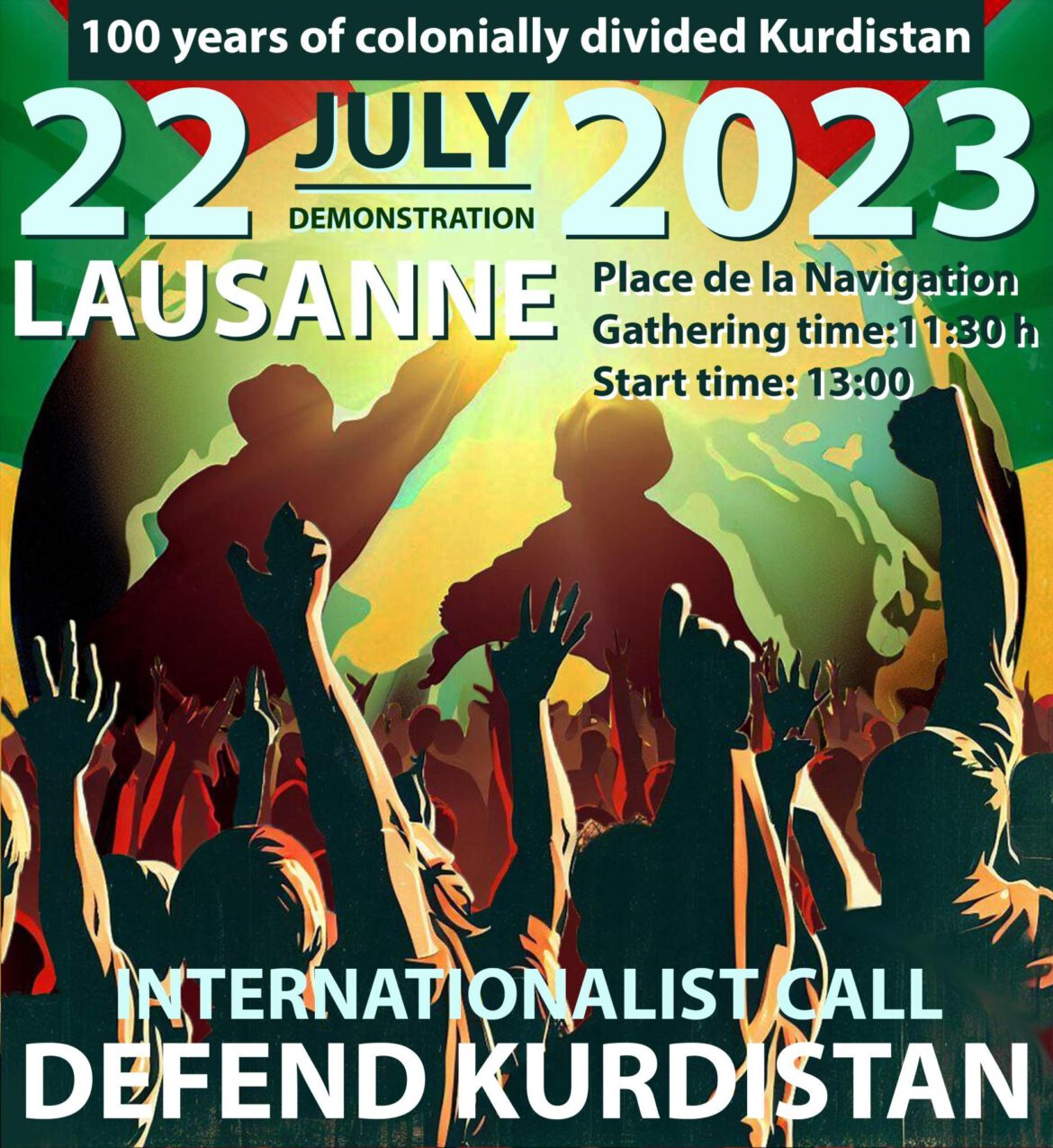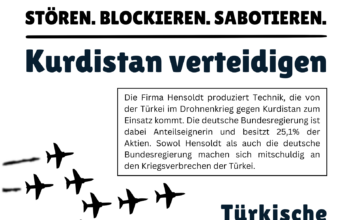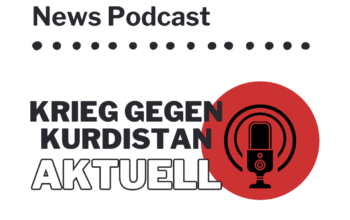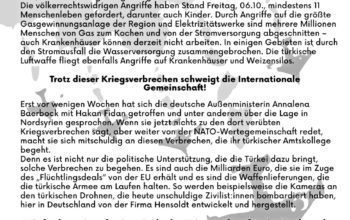Internationalist call: major demonstration taking place in Lausanne 22 July
Place de la navigation / Lausanne / Switzerland – Gathering 11.30 / Start 13.00
100 years ago, on July 24, 1923, an international conference of imperialist states took place in Lausanne as a result of previously fought wars of distribution in the Middle East. At this conference, Kurdistan was divided among four nation-states through the so-called Lausanne Treaty. With this, the systematic policy of denial, assimilation, and cultural genocide against the Kurdish people was initiated, and Kurdistan was transformed into an international colony.
After the signing of the Treaty of Lausanne, a dark period began in Kurdistan. From 1925 to 1938, hundreds of thousands of Kurds were massacred and expelled in Northern Kurdistan, and a policy of starvation, torture, denial, and assimilation was established in Kurdistan. In Southern Kurdistan, the Treaty of Lausanne was followed in the 1980s by the Anfal genocide, with over a hundred thousand dead. In Halabja, the Kurdish equivalent of Guernica, the Iraqi Air Force perpetrated an attack with German poison gas, which caused at least 5000 deaths. At least 7,000 people were injured, some of whom have suffered permanent health damage to this day. In Eastern Kurdistan, the brutal and Western-backed regime of the Shah of Persia and, in the 1980s, the new Islamist rulers perpetrated numerous massacres of leading figures of the Kurdish liberation struggle and the revolutionaries of Şîno, Mahabad, and Sine. The nationalist Ba’ath regime in Syria also attempted to eradicate the Kurdish presence in the north of the country, expatriated hundreds of thousands of Kurds in western Kurdistan, and pursued a systematic policy of Arabization of Kurdish settlement areas.
The consequences of the Treaty of Lausanne are still painfully felt by the people of Kurdistan today. The barbed wire and minefields that still separate the four parts of Kurdistan 100 years later and the torture chambers after the signing of the treaty are only the most obvious to mention. Until today, families are separated by fences and walls, Kurds are murdered trying to cross the borders, and entire towns are torn in two by arbitrarily drawn borders. The Treaty of Lausanne is a dagger in the heart of Kurdistan and forms the basis for the 100-year denial and genocide policy that finds its continuation today in the murderous attacks of Turkish fascism against the liberated areas of Rojava, Şengal, Mexmûr, and the free mountains of Kurdistan. The fact that, until today, the Kurdish people do not have a recognised political status, that the struggle for the most basic rights is accused of terrorism with partly insane claims, that Kurdish fighters can be massacred with chemical weapons without anyone raising their voice, and that the political representative of an entire people, Abdullah Öcalan, continues to be imprisoned in total isolation against any law—all this would not be possible without the Treaty of Lausanne.
However, in the 100 years that have passed since the day it was signed, the Kurdish people have defended their existence through tireless resistance against dozens of dictatorial regimes. With its uninterrupted struggle since 1978, the Kurdistan Freedom Movement has raised the resistance of the multi-ethnic Kurdistan Region to the highest level. It has created an invincible culture of resistance, and today the ideas of this movement and its mastermind, Abdullah Öcalan, show not only the peoples of Kurdistan and the Middle East but also the peoples of the whole world that another world is possible. In Kurdistan, the heart of the revolution of the 21st century, a new wave of internationalism is spreading throughout the world.
After 100 years of exploitation, massacres, and resistance, the Kurds are coming to Lausanne in Switzerland this year to make it clear once and for all: ‘Even after 100 years, The Treaty of Lausanne is not accepted by the Kurds!’ After 100 years, it is time to draw a final line and end the era of foreign rule and occupation. The Treaty of Lausanne is a treaty that was dictated over the heads of the peoples of the region and has no legitimacy.
As friends of the Kurds, we will stand next to them on the streets of Lausanne. Our struggles are similar. Therefore, we, as the Defend Kurdistan Initiative, call for internationalist participation in the historic demonstration in Lausanne on July 22, 2023. We invite all our solidarity structures and internationalist friends to join the big internationalist block.
Defend Kurdistan Initiative
Place: Place de la navigation / Lausanne / Switzerland
Gathering time: 11.30
Start: 13.00



